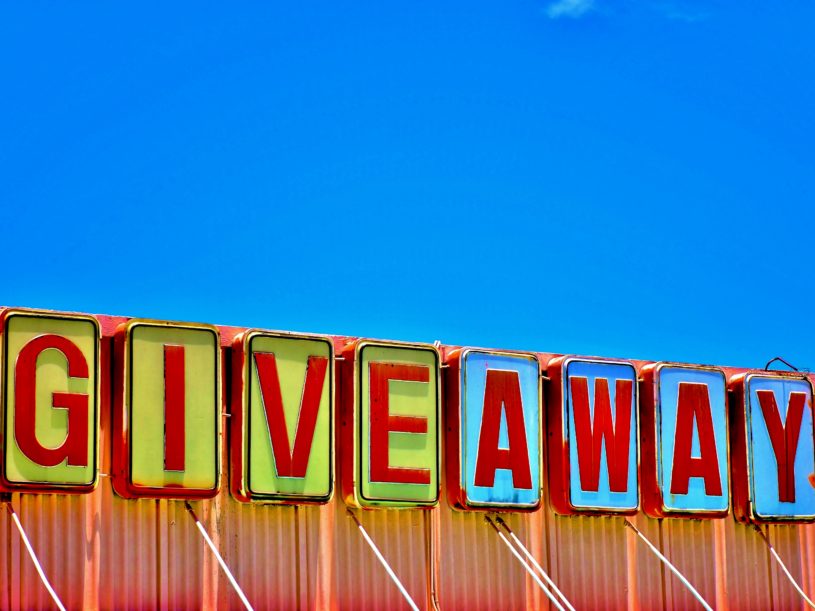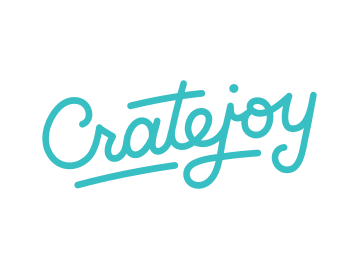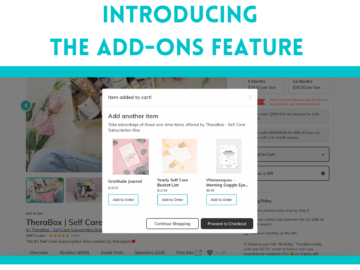Hosting a contest or giveaway can do wonders to boost your brand’s profile and collect leads (or subscribers!), especially in your prelaunch phase or the first few months after you launch. Think about it: a contest or giveaway allows your follower base to feel included and engaged, while a few lucky winners get to check out – and perhaps review for others – your subscription box. It’s an invaluable opportunity to build brand awareness and bring in leads, all for the one-time price of a prize.
Today, we’ll cover the following topics:
- What constitutes a contest
- What constitutes a giveaway
- Establishing your objective
- Choosing a promotional platform
- Selecting prizes
- Selecting winners
- What happens during the promotion
- What happens after the promotion
But first, let’s define a couple terms.
Contests

To start with, contests and giveaways are not the same. Contests are competitions of skill that are judged by a set of criteria. To hold a contest, you need to identify what action your contestants will perform in order to enter. You will also need to think about who will decide the winner. Will you work with a judge to determine who wins?
It sounds more efficient to choose a winner yourself, but there are some ethical ramifications you’ll want to consider. If your friends and family enter (or choose to share) your contest to support your business, and then someone connected with them happens to win, it could give a bad impression.
You’ll also want to consider the role that you want user-generated content (UGC) to play in your promotion. If you run a contest – rather than a giveaway – you’re more likely to encourage UGC, as entrants might create UGC in order to enter. (For instance, asking Instagram followers to create posts using a certain hashtag related to your niche.)
However, fewer people may enter if they feel that the requirements to enter are too complicated.
Giveaways (aka Sweepstakes)
 We’re using the term “giveaways” in this post, but you might know them by the name of “sweepstakes”: opportunities to win something totally by chance. These are different than lotteries because there’s no fee to enter a sweepstakes.
We’re using the term “giveaways” in this post, but you might know them by the name of “sweepstakes”: opportunities to win something totally by chance. These are different than lotteries because there’s no fee to enter a sweepstakes.
Lotteries require what’s called “consideration” to enter: usually a purchase, but the definition is broad enough to include anything of value. That can mean that if the entrant makes a significant amount of effort to enter, it counts as consideration. According to ShortStack, some states have determined that even entering contact information can count as consideration if that contact will be used for marketing.
The legal stuff: Lotteries and giveaways have very specific rules to differentiate them, and it’s illegal for small businesses to host a lottery. Be clear on the legal differences between a giveaway and a lottery with LawTrades’ breakdown.
The main benefit of randomized giveaways is that, because the requirements offer a low barrier to entry, you may get a higher number of entrants. However, it may then become a question of protecting your giveaway from fraudulent entries.
Settle On a Goal

Before you can decide between a contest or giveaway, take some time to jot down your objective(s) for the promotion. Why do you want to do this? What benefits does this promotion serve for your burgeoning subscription box business?
Some objectives you might set for your promotion include:
- Lead capture. In other words, getting email addresses for your mailing list. If that’s your goal, asking followers to enter by giving you their email address is a fast and easy way to increase your participant numbers.
- Growing your followers on social media. You might ask followers to comment on a Facebook post, repin an image of their choice from one of your Pinterest boards, or comment/like your Instagram post. (See platform rules below.)
- Building brand awareness. That is, making your brand a household name. This goal is more theoretical than concrete, so it can overlap with other promotion goals (like lead capture). We suggest you publicize your promotion on social media and redirect potential entrants to your website, where users can sign up to enter.
- Increase conversions and/or sales. Same idea as building brand awareness – getting the user onto your storefront or Cratejoy Marketplace listing is the best way to encourage subscriber conversions.
Whatever your objective, this goal will help determine whether a contest or a giveaway is best for your business.
Pick a Platform

After you decide whether you want to run a contest or a giveaway, you’ll need to decide the best platform for promoting the event. You could host it on your website, or move the contest/giveaway onto a social media platform like Facebook, Instagram, or Pinterest. All three sites, however, have specific rules about what you can and can’t do when sponsoring a promotion on their platform. For instance, you’ll need to note on each one that your contest or giveaway is not sponsored, administered, endorsed, or affiliated with their platform.
Let’s take a look at the specifics – and benefits – of each.
Promotions on Facebook
For Facebook, you’ll need to host the promotion on your official business page or a Facebook group for your business; personal accounts can’t be used to host promotions. More importantly, you can’t encourage the use of friend connections to promote your business. So asking your fans to “tag friends to enter,” or share the contest/giveaway on someone’s Timeline, is a no-go. (While users are certainly allowed to share your promotion, you simply can’t require them to.)
You can’t require people to like your page in order to enter, either. But you can ask someone to comment on your page to enter.
Promotions on Instagram
Instagram has similar rules as Facebook for hosting contests or giveaways. The site does not allow you or entrants to tag friends in your brand’s posts.
Otherwise, though, you have options – you can ask users to comment on your posts, for example. Or if you’re running a contest, ask followers to post a photo of themselves doing something related to your niche! Food52, a massively popular foodie website, does this weekly; their followers are asked to post an image of something they’ve cooked that matches the week’s hashtag (such as #f52salad) for a repost by @food52 in return. This isn’t a contest per se, but if a winner is a food blogger or home cook (as many are), Food52’s repost can exponentially increase their fanbase.
Promotions on Pinterest
On Pinterest, users are only allowed to enter your contest/giveaway once, and you can’t ask them to repin a specific post. This rule allows for more organic generation of pins on the site. That being said, Pinterest suggests you offer entrants the chance to choose from a wider selection of pins to share. So you might create a board for your promotion and ask followers to repin something from there!
Prizes, Winners, and Selection: The Technical Stuff

But before you even announce your contest or giveaway, you’ll need to choose a prize! Think about your target customer. What might appeal to them and be useful? We recommend that you choose a prize that’s relevant to your business.
For example, a lot of businesses have chosen in the past to give away iPads. While this might seem like a great idea at first, it ultimately wastes an opportunity to convert leads to subscribers. Unless your subscription box is focused on Apple accessories, that prize is not pertinent to your lead base. They might find a tablet useful, but it’s not going to keep them around and interested in your subscription after the contest/giveaway ends.
Instead, think about how you’d like to draw in and keep customers. If you’re not able to give a free box for a prize, maybe you could offer a star product from your subscription, one that exemplifies the spirit of your value proposition.
Collecting Data and Selecting Winners

As we’ve discussed, contests require some degree of skill. If you’re hosting a contest, you’ll need a judge or set of judges to decide the winners. You may also want to offer fewer winners than in a sweepstakes, where the barrier to enter is lower. Who do you trust to choose a winner, and how will you gather the entrants’ data for that judge to decide?
If you’re hosting a giveaway, you might have a greater number of winners (say, 5-10 instead of the 1-3 usually offered by contests). This helps your leads feel more invested in the opportunity and more likely to enter, as their chance of winning is higher. Because a sweepstakes requires winners to be selected totally at random, though, you’ll need some kind of software to gather your entrant data and pick those winners.
Below are some popular options for organizing entry data and selecting giveaway winners.
KingSumo
Seasoned entrepreneurs in our Subscription School community tout this site as the best of the best. KingSumo offers a free plan with unlimited giveaways, integrations and embeds for your site or social media. When you set up a giveaway, KingSumo also automates a countdown clock on your promotion. That helps create a sense of urgency and incentivize leads to engage. The site will also randomly select a winner when you’re ready to do so – but it doesn’t automate winner notifications, so that’s up to you. Nor does the site allow you to give more than one prize, which could be a drawback if you want to showcase a wide range of products.
Wishpond
This “all in one” site offers two options for users: either you can manage your contest/giveaway yourself or Wishpond’s team will develop a marketing campaign on your behalf. For the DIY camp, they offer ten different types of promotions, as well as automated email campaigns, lead tracking, and audience segmentation.
Gleam
Gleam is equally capable of handling contests and giveaways, and is another favorite of our Sub School entrepreneurs. There’s a free plan (which limits your access to only the data of winners) or you can upgrade to a $10/month “Hobby” plan (which allows you to access the data of all entrants). All plans include automatic fraud detection to dissuade deceitful entries, as well as embeds, Facebook Tab integration, and a Gleam-hosted landing page.
Maître
This one specializes in habitual campaigns (e.g. weekly or monthly) and is super easy to set up. Maître builds a brief, straightforward entry form to capture emails as sweepstakes entries. You can customize the form as you like to echo your branding and embed the form on your website. After an entrant submits the form, they’re given a unique referral link to share the promotion with others.
Random Name Picker
Self-explanatory. Works well to select winners in a giveaway, but you’ll have to enter all the names/data manually. It doesn’t help you identify fraudulent entries, either – so if someone entered your giveaway multiple times using different email accounts, you’ll never know.
During the Promotion

On launch day, you’ll need to include certain information in your announcement post or press release. Make sure to list:
- The hosting platform’s required disclaimer.
- “No purchase necessary.” If you don’t do this, someone could interpret this as a lottery. And yes, purchases include having a subscription – so you can’t limit entries to existing subscribers.
- “Void where prohibited.” This covers your bases, as contest/giveaway rules are enforced by the entrant’s location and not your own.
- The length of time followers have to enter and a stated deadline. Make it short enough to create urgency, but not so long people forget – 5-7 days is a good place to start.
- How often people can enter. If it’s one entry per person, be clear about that.
- The prize(s), of course!
- The number of winners and any runner-up prizes, as well as when you will notify everyone who entered.
While your promotion is open, you’ll want to send out regular reminder posts and emails to maintain interest in the contest/giveaway. This is where a social media calendar and email drip campaigns come in handy. Draft these reminders and automate them in advance, so you can focus on customer service and other aspects of your business while the promotion runs.
If you’re in touch with any bloggers or influencers, ask if they mind spreading the word about your promotion. That can increase your reach and potentially your number of entries!
When the Promotion Ends

Notify the winner(s) first, via email if possible. That gives them time to confirm their interest in the prize (and send you any necessary details like shipping address) before you announce the winners publicly. If you announce a winner and never hear from that winner again, you’ll have to select and re-announce a replacement. That could feel awkward for the new winner and look embarrassing for your brand.
Also, take your time sending promotional emails to the new leads you’ve attracted. Most leads will not have won, so they may be disappointed and less receptive to marketing to at that time. If you set up drip campaigns to slowly ease them into promotional email marketing, however, you should be able to keep these leads and grow your business from there.
Now get out there and do that giveaway!



